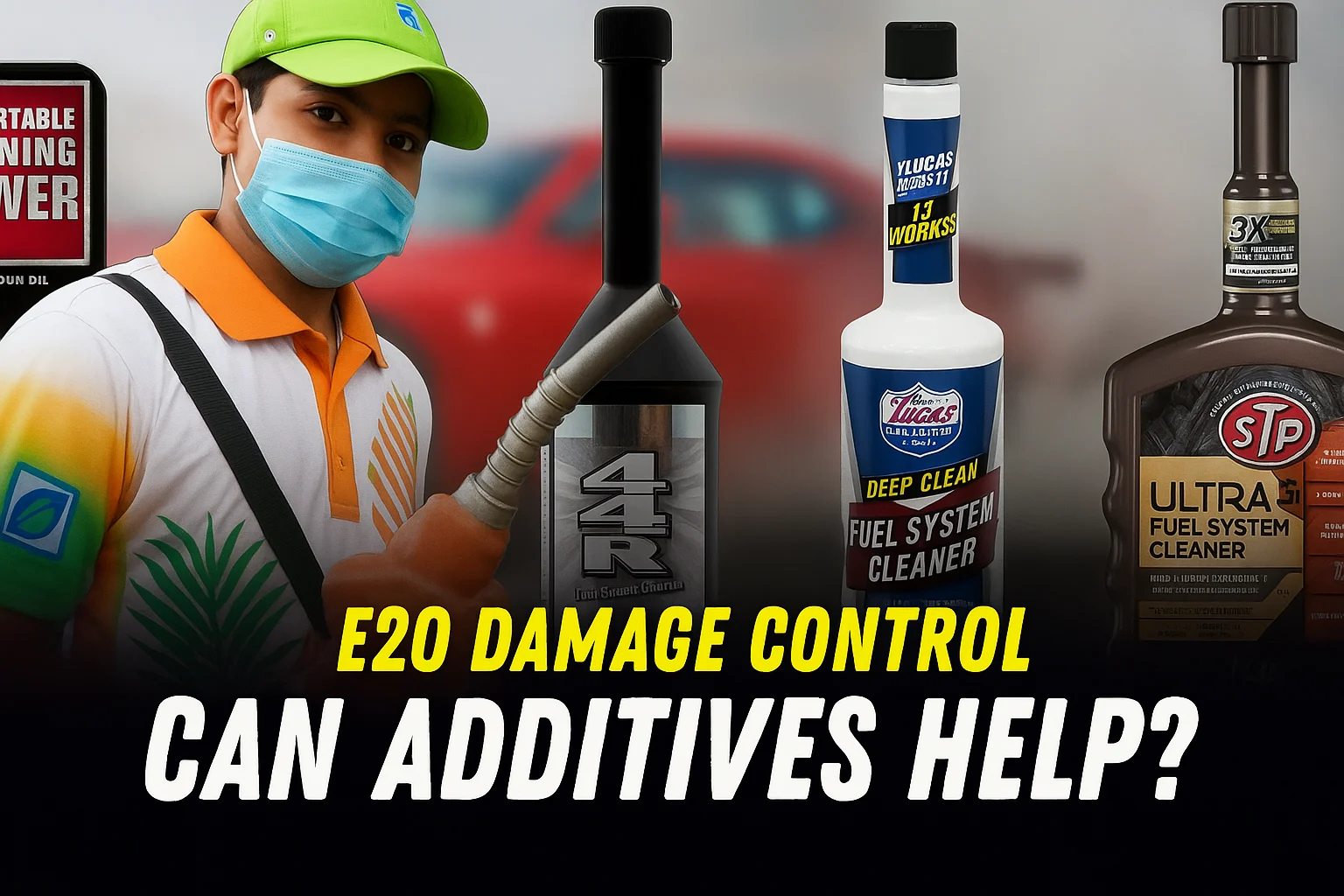With E20 petrol (20% ethanol-blended) now the norm across India, vehicle owners—especially those with older cars and bikes—are facing serious headaches. Complaints are surfacing everywhere: lower mileage, sluggish performance, and fears about long-term engine damage. Here’s what you need to know, and how fuel system cleaners might just be your best bet for surviving this big fuel switch.
What’s The Problem With E20 Petrol?
- Older (Pre-E20) Vehicles Are the Most at Risk: If your car or bike was manufactured before April 2023, chances are it was only designed to handle up to E10 (10% ethanol) petrol. Using E20 can lead to:
- E20-Compliant Cars Aren’t Completely Safe Either: Even new, E20-ready vehicles can see faster wear of some rubber components and will need more frequent replacements of hoses, gaskets, etc..
How Are Owners Dealing With This? The Rise of Fuel System Additives
One workaround that’s gaining popularity is the use of fuel system cleaners, or additives. Bajaj, among others, has recommended them not just for bikes, but also for cars and SUVs.
What Are Fuel System Cleaners?
- Chemical additives poured into your car or bike’s fuel tank.
- Clean out contaminants from injectors, valves, engine internals, and fuel lines.
- Remove rust and moisture absorbed by ethanol.
- Restore lost fuel efficiency and improve engine performance.
- Protect against some of the damage E20 petrol can cause.
Brands You Can Buy
- Liqui Moly
- Iftex
- STP
These are available online and at auto spares stores. Many petrol pumps in major cities sell them at the counter as well.
Dosage & Cost
- Bikes: Use about 40ml per full tank (₹80-100).
- Compact Cars/SUVs (about 45L tank): Recommended 354ml per full tank.
- STP cleaner: ₹1,450 for 400ml (single use for most cars).
- Iftex: ₹342 for 200ml (two bottles = ₹684 per tank).
The Big Picture: Additives Mean Higher Vehicle Running Costs
- Frequent Use Required: You’ll need to use these additives regularly for your engine’s health.
- Increased Ownership Cost: Over 5-7 years, regular additive use could cost anywhere near ₹1 lakh or more for frequently used vehicles.
- Non-Compliant Cars Are Most Vulnerable: Owners of pre-BS6 vehicles should be especially proactive, or risk expensive repairs.
Final Thoughts
India’s rapid shift to E20 petrol has brought confusion and concern—especially for owners of older cars and bikes. While official bodies claim the risks are minimal, real-world feedback shows otherwise. Fuel system cleaners and timely maintenance (like frequent rubber part replacements) are your frontline defence. With increased costs now a reality, staying proactive is the only way to avoid bigger bills down the road.
If you own an older vehicle, don’t ignore the additive hack—the small investment could save you from a much bigger headache later!



